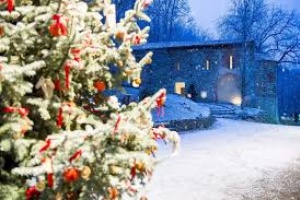Guided by the voices of the authors he has encountered along the way, Rubbo has an incredible life story that has constantly revolved around the heart of the Italian community in Melbourne: Carlton.
From inhaling the aroma of coffee as a young child to mingling with likeminded people over bocce and wine as a university student, many of Rubbo’s fondest memories were formed in the northern suburb.
Throughout his career, Rubbo has revolutionised the way Melburnians buy books, altering the image of independent booksellers across the country and honouring the local preferences and diverse character of each new neighbourhood.
His achievements are the result of a labour of love and constant determination to “keep going and be confident”.
Rubbo greets me in the quiet of his office on Drummond Street, in Carlton; I am not surprised to find it houses hundreds of books.
He begins telling me a fascinating story that has its roots in 19th-century Naples.
It is not a story from one of the many books surrounding us; rather it is the rich history of his family.
Rubbo’s grandfather, the famous Antonio Salvatore Dattilo-Rubbo, was an artist hailing from Pontelandolfo, a town in the province of Benevento.
He migrated to Sydney in 1897.
“The family’s not quite sure why he came to Australia,” Rubbo says.
“There’s a rumour that he had get out of the country quick, because he challenged the local priest.
“He was going to go to South America but he missed the ship and the next ship to depart was going to Australia.”
Upon his arrival, Dattilo-Rubbo opened an art studio and began teaching his craft, gaining quite the reputation; many early modern Australian painters studied under him, including Norah Simpson, Frank Hinder, Grace Cossington Smith, Donald Friend and Roland Wakelin.
“I was six years old when he died, so I don’t remember much about him,” Rubbo admits.
“My brother and my son went to Naples a number of years ago and tried to find out more about him.
“They discovered he was actually a foundling; he’d been abandoned at a church and was adopted.”
Despite his Italian heritage, Rubbo grew up speaking English, as did his father, Sydney, in a bid to assimilate.
After studying pharmacy in New South Wales, Sydney travelled to London and studied tropical medicine and microbiology in the early 1930s.
While in London, he met a fellow Australian by the name of Ellen Christine Gray, whom he fell in love with and went on to marry in 1937.
The couple moved to Melbourne when Sydney got a professorship in microbiology at the University of Melbourne.
Rubbo and his siblings grew up in East Ivanhoe, then Parkville.
Sydney came to embrace his Italian roots later in life, taking on the role of president of the Dante Alighieri Society in the 1960s and receiving the honour of knighthood from the Italian Republic.
“He was always proud of his Italian heritage and as he grew older, he became much more interested in it,” Rubbo says.
“He used to organise what he called ‘spaghetti cures’; when I was a child, we used to go up to Kinglake and enjoy beautiful Italian folk music and lots of spaghetti.
“He used to say: ‘This is my spaghetti cure’.”
Rubbo was just 20 years old when his father passed away.
Sydney had introduced his son to the vibrant scene unfolding in Carlton and the many facets of the Italian community.
In a bid to carry on his father’s legacy, Rubbo enrolled in medicine at the University of Melbourne; however, he came to realise it wasn’t for him and transferred to an Arts degree, majoring in politics and economics.

A photo of Mark Rubbo taken in the 1970s. (Photo supplied)
“The campus was very exciting and I spent a lot of time on Lygon Street,” Rubbo recounts.
“The Italians liked to have fun; in those times, the pubs used to be in houses.
“I knew one run by an Italian woman called Vera, and out the back there was a big bocce court.
“They sold some beer and wine, illegally; we students used to go there and watch old men playing bocce while drinking wine!”
During those frivolous years, Rubbo began working at the university bookshop, which sold textbooks and books of interest to staff and students, as well as records.
After working in the music section and realising he had a knack for the trade, Rubbo decided to branch out on his own.
With a small loan from his mother, he opened his record shop, Professor Longhairs’ Music Shop, on Lygon Street.
The Readings bookshop was just down the road from Rubbo’s record shop.
“Many people think that the name Readings was inspired by the act of reading but it’s actually the surname of the original owners, Ross and Dorothy Reading,” Rubbo says.
“We were very friendly and I used to buy books and records from them.
“In 1976, they came to me and offered me the opportunity to buy the business as they were moving to the country.
“I had two business partners at the time [Greg Young and Steve Smith]; we agreed to buy the bookshop and that’s how it all started.”
It was a good time to be selling books: Carlton had evolved into a hub for bookworms and well-read people, and with the arrival of the Whitlam government in 1972, “they put a lot of money into the arts and literature”.
Readings became a sanctuary for literature lovers, hosting events and book launches for popular authors.
In 1983, the shop moved to larger premises on Lygon Street and, throughout the 1980s and 1990s, business boomed, leading to a final move in 1998, to the former Commonwealth Bank building across the road.
The building was five times bigger than the original Readings and allowed the business to grow even more.
But 10 years later, during a sweltering Australian summer, US giant Borders Group Inc. opened a new store less than a hundred metres from Readings and the script for the movie You’ve Got Mail seemed to come to life on Lygon Street.
For Rubbo, a peaceful coexistence was not an option.
“In America, Borders was driving smaller bookshops out of business and I knew that might happen to us,” he says.
Thanks to its loyal clientele, Readings avoided the same fate.
After almost six months of trading, the Borders store was losing money.
The day Harry Potter and the Order of the Phoenix launched across the globe, the local community’s loyalty to Readings was cemented.
When the doors opened on either side of Lygon Street, Readings sold a staggering 400 copies before 11:00 am at full retail price.
Over the span of the whole day, more than a thousand customers chose not to cross the street to buy the same book at half-price from Borders.

A full Readings during a book launch with the author in the 1970s. (Photo supplied)
Alongside his tireless work at Readings, Rubbo is a past president of the Australian Booksellers Association and was founding chair of the Melbourne Writers Festival among many other important roles.
In 2006, he was awarded a Medal of the Order of Australia, “for service to the community through fostering an awareness of Australian literature as a bookseller, literary critic, and promoter and supporter of Australian writers”.
In a bid to give back to the community, Rubbo also established the Readings Foundation in 2009, which assists Victorian organisations that support the development of literacy, community integration and the arts.
“Being able to support Australian writers has been really important to me,” he says.
“We also support Australian children’s literacy, because if you have a tertiary education, there’s a greater chance of breaking the cycle of poverty.”
Over the decades, Rubbo has harnessed his passion and innovation to adapt to the changing times and overcome the many obstacles his business has faced.
Having survived the COVID-19 pandemic, Readings opened its eighth store last December, in Melbourne’s CBD.
“We opened just before Christmas; it went pretty well and then in January and February there was nothing at all due to the pandemic,” he says.
“My son Joe, who opened the shop in the city and will take over from me, said: ‘Dad, we’ve made a terrible mistake.’
“I told him to keep going and be confident; let people come back and rebuild.
“Even after the pandemic, people still want to go to bookshops; they’re safe places with interesting and exciting things to see.”












